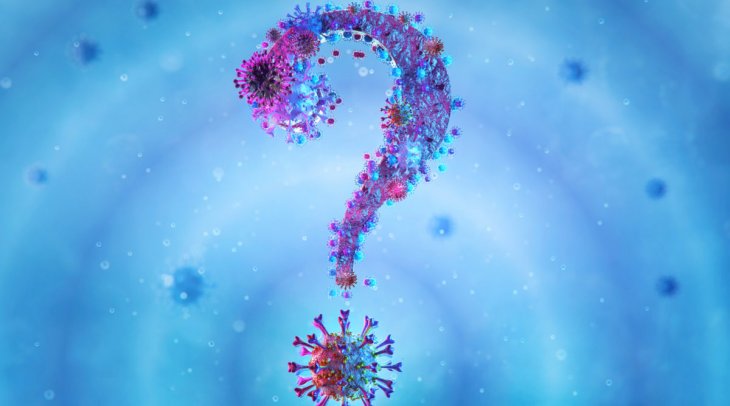Impacted by the Federal Shutdown? Get Resources and Support
We’re launching a new website for Baltimore City!
Check out the new beta site and share your feedback.

Who should get the COVID-19 vaccine?
The COVID-19 vaccine is available to everyone age 6 months and older!
Regardless of your age, health status, or how many times you’ve had COVID, staying up to date on your COVID vaccines is the best way to protect yourself and loved ones from the worst effects of COVID, including hospitalization and death.
Are COVID-19 vaccines safe? Can they give you COVID-19?
COVID-19 vaccines are safe! They have prevented millions of hospitalizations and deaths from COVID-19. Like all vaccines, COVID vaccines are carefully monitored for safety. You may have some side effects after getting your vaccine - like headache, fatigue, muscle aches, or nausea - but these are not signs that you're sick with COVID; they are signs that your body is building immunity to the virus. Side effects will typically go away within a day or two.
Finally, it’s important to remember that we’ve been here before. For instance, when the polio vaccine was invented in 1955, many were afraid of its potential side effects. But because of the safety and success of the polio vaccine, the disease has almost entirely disappeared in the U.S.
How do the COVID vaccines work?
Simply put, the Pfizer, Moderna, and Novavax vaccines use science to teach our immune system to recognize and fight the COVID-19 virus. Pfizer and Moderna achieve this by mimicking the COVID virus without putting it into our bodies. This process is safe, does not change our DNA, and best of all, has approval from the Food and Drug Administration (FDA) - like hundreds of other vaccines! The Novavax vaccine, which also has FDA approval, is slightly different because it uses harmless proteins from COVID to achieve the same immune response in our bodies.
But no matter which COVID vaccine you choose, it will not infect you with COVID. Instead, it will protect you from it.
Why should I trust the government when it tells me to get vaccinated?
You don’t have to trust politicians. But you should trust medical professionals, including your healthcare provider and child’s pediatric provider. The vast majority of U.S. healthcare experts strongly recommend COVID vaccines.
I’ve made it this far. Why should I get the vaccine now?
COVID is still one of America’s top 10 causes of death. If you aren’t vaccinated you have a significantly greater chance of getting COVID and spreading it to a loved one. And when you do get it, you have a greater chance of being hospitalized or even dying if you haven't had the vaccine. You are also twice as likely to develop “long COVID,” with symptoms that can last for years. Why keep taking that chance for yourself or the people you care most about?
But let’s be honest, getting COVID-19 is also a huge inconvenience. Many people with COVID have lost wages and had to use sick time at work. Many have also had to take time off to care for children or elderly loved ones who get COVID. Even if you are lucky enough not to have severe symptoms, you should still isolate from others to protect those around you - which could cause you to miss your dream vacation, a once-in-a-lifetime wedding, or the big game you have tickets to.
What is long COVID? How does it differ from normal COVID?
Most people who are infected with COVID-19 will recover from their symptoms after a few days or a couple of weeks. However, those who develop “long COVID” experience symptoms like fatigue, brain fog, shortness of breath, or chest pain for weeks, months, or even years after their infection.
While we still have much to learn about long COVID’s causes and long-term effects, we do know that being vaccinated reduces your risk of developing long COVID after any COVID illness.
I already got a COVID shot (or many). Why should I get another?
The original vaccine played a very important role in strengthening your body’s COVID-19 immunity. But over time, that immunity wanes. And like all viruses, the one that causes COVID-19 is constantly changing. Some variants are more contagious than others; some variants are more likely to cause severe disease or death. New vaccines are being developed regularly to protect against the variants that pose the greatest risk at this time. Staying up to date with your vaccines will keep you protected for the long haul as the COVID virus keeps changing.
Should I still wear a mask?
A high quality, well-fitting mask will help protect you from getting COVID or spreading it to others, especially in crowded areas or small confined spaces where transmissibility is highest.
If you are at high risk for developing severe symptoms from a COVID infection (i.e., the immunocompromised, elderly, and/or those with multiple health conditions), you should strongly consider wearing a mask in public.
Should I still get tested for COVID? What if I can’t afford a test?
Testing is still one of the most important ways to protect others from COVID. If you have symptoms, you should immediately test yourself with an at-home rapid test or a lab test at a pharmacy or doctor's office.
Back to Main Page